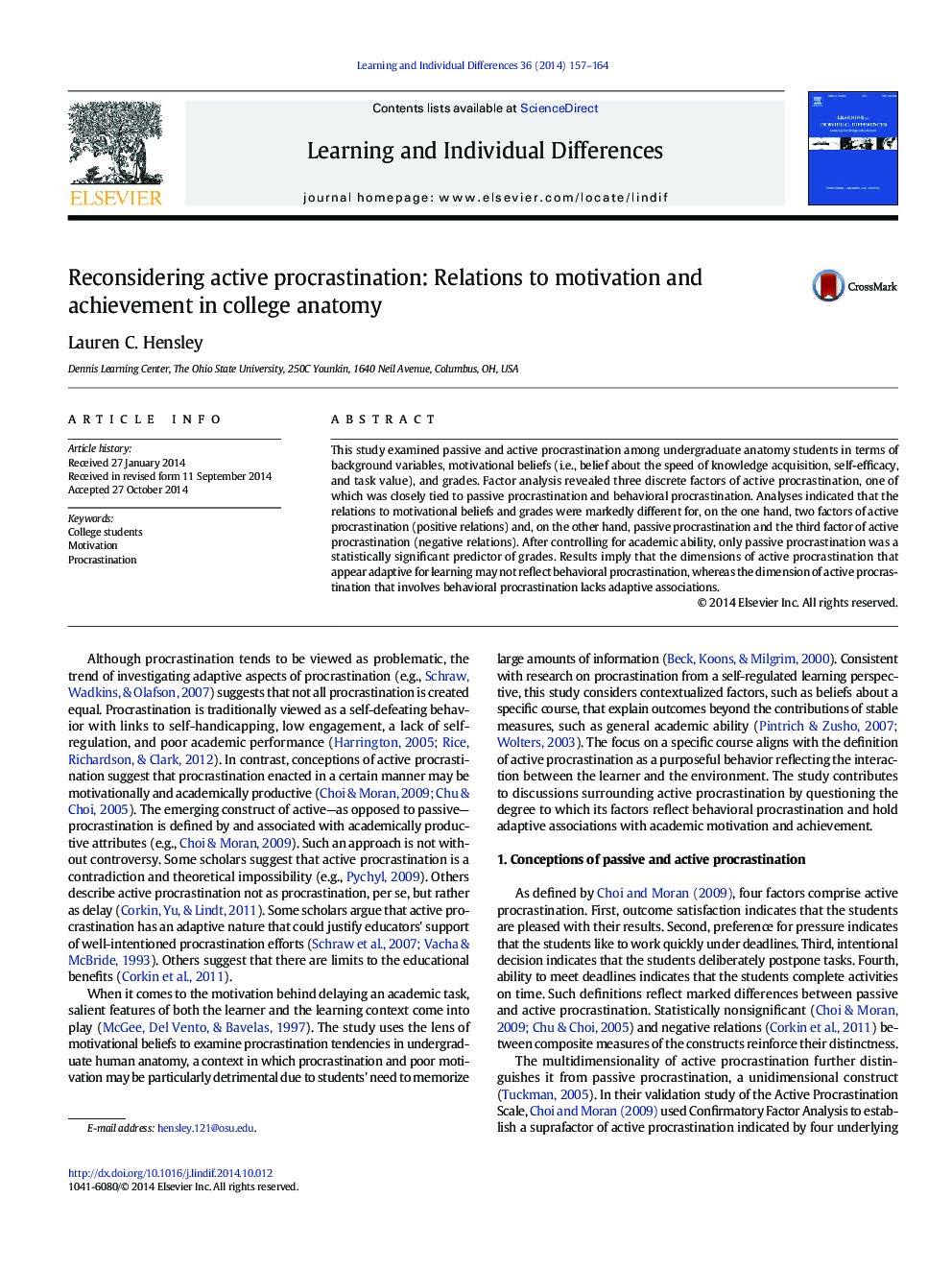| Article ID | Journal | Published Year | Pages | File Type |
|---|---|---|---|---|
| 6845038 | Learning and Individual Differences | 2014 | 8 Pages |
Abstract
This study examined passive and active procrastination among undergraduate anatomy students in terms of background variables, motivational beliefs (i.e., belief about the speed of knowledge acquisition, self-efficacy, and task value), and grades. Factor analysis revealed three discrete factors of active procrastination, one of which was closely tied to passive procrastination and behavioral procrastination. Analyses indicated that the relations to motivational beliefs and grades were markedly different for, on the one hand, two factors of active procrastination (positive relations) and, on the other hand, passive procrastination and the third factor of active procrastination (negative relations). After controlling for academic ability, only passive procrastination was a statistically significant predictor of grades. Results imply that the dimensions of active procrastination that appear adaptive for learning may not reflect behavioral procrastination, whereas the dimension of active procrastination that involves behavioral procrastination lacks adaptive associations.
Related Topics
Social Sciences and Humanities
Psychology
Developmental and Educational Psychology
Authors
Lauren C. Hensley,
